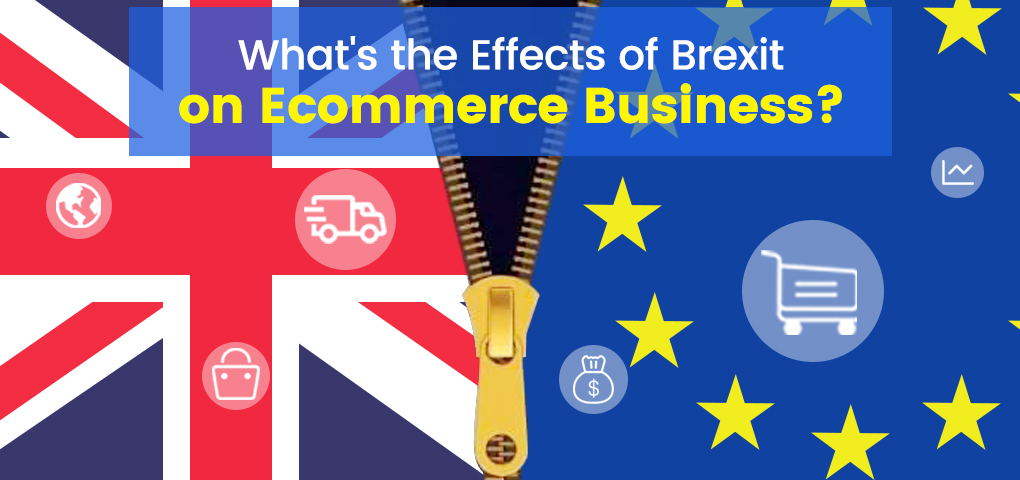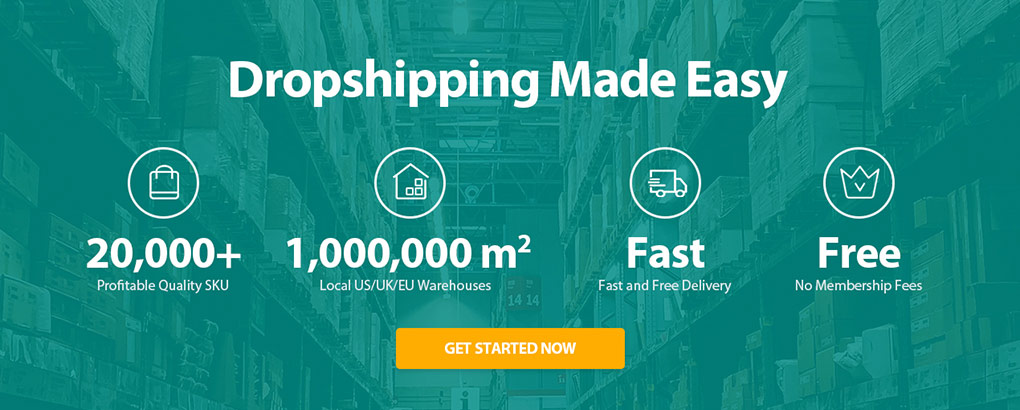The e-commerce and logistics market in Europe is going to be affected by Brexit. And one of the major Brexit and ecommerce challenges would be the movement of goods to European countries. While you are preparing to grow your business and make New Year’s sales 2021, you should also prepare a solid Brexit strategy for your e-commerce business. In this guide, we collate the impact of Brexit on European Union and e-commerce businesses as well as the strategies on how to respond to the effects of Brexit.
As we progress into the New Year 2021, Brexit is among the major highlights across EU nations. Although many possible scenarios and uncertainties are surrounding this agenda, one thing is certain; Brexit will affect the e-commerce sector in Europe. This is a critical issue for online retailers in Europe because:
- The U.K. is known to be the e-commerce powerhouse in Europe.
- As of 2017, 86% of internet users shopping online in Europe are from the U.K.
So, if you dropship products to the U.K. or don’t know how Brexit will impact U.K. trade? You need this guide to help you learn how your products can reach your EU customers this period.
What Is Brexit?
Brexit (like British Exit) is the unofficial name for the United Kingdom’s impending departure from the EU. On the 31st of January 2020, four nations including England (U.K.), Wales, Northern Ireland, and Scotland formally left the European Union (EU). However, everything will remain the same (including all EU laws and rules) until December 2020 when the transition period is over. The vote, which was held on June 23, 2016, has already had a major global impact in different sectors which is likely to increase come 2021. New agreements will be made and new laws will be imposed after the transition period. As a result, online retailers need to prepare for uncertainties that may arise come January 2021.
The Effects Of Brexit On Ecommerce Business
During the first few weeks or months into Brexit, delivery times will be affected. Some UK customers may have to pay a higher tax for imported goods and if the duty amounts are so high, they may be forced to find new suppliers. We don’t know the full impacts of Brexit, yet, we will list out some economic effects of Brexit.
1. The relationship between the UK and the EU will change. E-commerce businesses will have to deal with new regulations with imported and exported goods. There may be stricter regulations for packages leaving and entering the UK which will cause custom delays – no more open borders we presume.
2. Brexit effect on exports will be affected as the EU will no longer recognize licenses and approvals issued by the UK. Thus, value-added taxes and duties will be payable on all goods.
3. Because the UK is the second largest e-commerce destination after China, a lot of shoppers from the EU may stop buying from the UK and start patronizing suppliers from China more. Also, the UK may stop buying from the EU and prefer to shop from suppliers in China. Either way, it is a win-win for Chinese suppliers.
4. UK businesses will have to change the way they manage consumer data for Brexit shipping labels and other vital data if the data is linked with businesses within the EU.
Strategies And Tips On How To Respond To The Impacts Of Brexit On European Union
With the UK preparing for its impending departure from the EU, how will e-commerce businesses throughout the world respond to the impacts of Brexit? Consider the following strategies to help you prepare:
1. Update your policy pages
If you sell across the borders of the UK and other EU nations, then you should tailor your policies to conform to the new regulations. Update your Brexit shipping policy, tariff policy, tax policy, etc. to act following Brexit’s and European Union regulations.
2. Keep currency options open
The British pound is the present official currency for the United Kingdom. While we are unsure whether they’ll continue with this currency, be sure that you keep currency options open. Ensure that your site can accept multiple currency options and various payment options as well. This strategy is crucial for accommodating online shoppers who leave the UK from the EU.
3. Consider selling outside of the UK and EU
Although we cannot fully quantify the effect of Brexit on e-commerce business, we know that it could be long term. To avoid unforeseen contingencies, online retailers should look into selling outside of the UK and the EU. Building a customer-base outside this region doesn’t stop you from selling within the region. It will only help you to better avoid possible problems associated with higher shipping tariffs, trade barriers, longer shipping times, strict import regulations, and lots more.
4. Check on suppliers
If all of your suppliers are situated within the UK and the EU, it is time to explore other options. For example, your business might be greatly affected if it is based in the UK with your suppliers located in Germany. Instead, look for reputable suppliers from China or the US that can offer quality products with high-profit margins. SaleYee.com is a leading dropshipping platform that has over 24k profitable SKUs and excellent customer support. With the SaleYee platform, you are sure to satisfy your customers with faster Brexit shipping. Thanks to local warehouses throughout the world, what your customers order for will get to them faster than ever.
5. Stay informed
As we wrap up this year, stay tuned to news or updates about Brexit’s economic impact. Paying attention to any Brexit news will help you stay up-to-date and prepared for whatever implications that may accompany it.
6. Use SaleYee Dropshipping platform
SaleYee.com offers the best shipping solution at an affordable price to any location regardless of Brexit’s impact. Use a shipping platform such as SaleYee to access multiple couriers within and outside the UK and EU.
Conclusion
Now you’ve seen the Brexit impact on UK trade and how you can cushion every effect. Preparation is the recipe for sustainability. Use the aforementioned tips and strategies to stay ahead in Brexit ecommerce as we dance into a new year.



